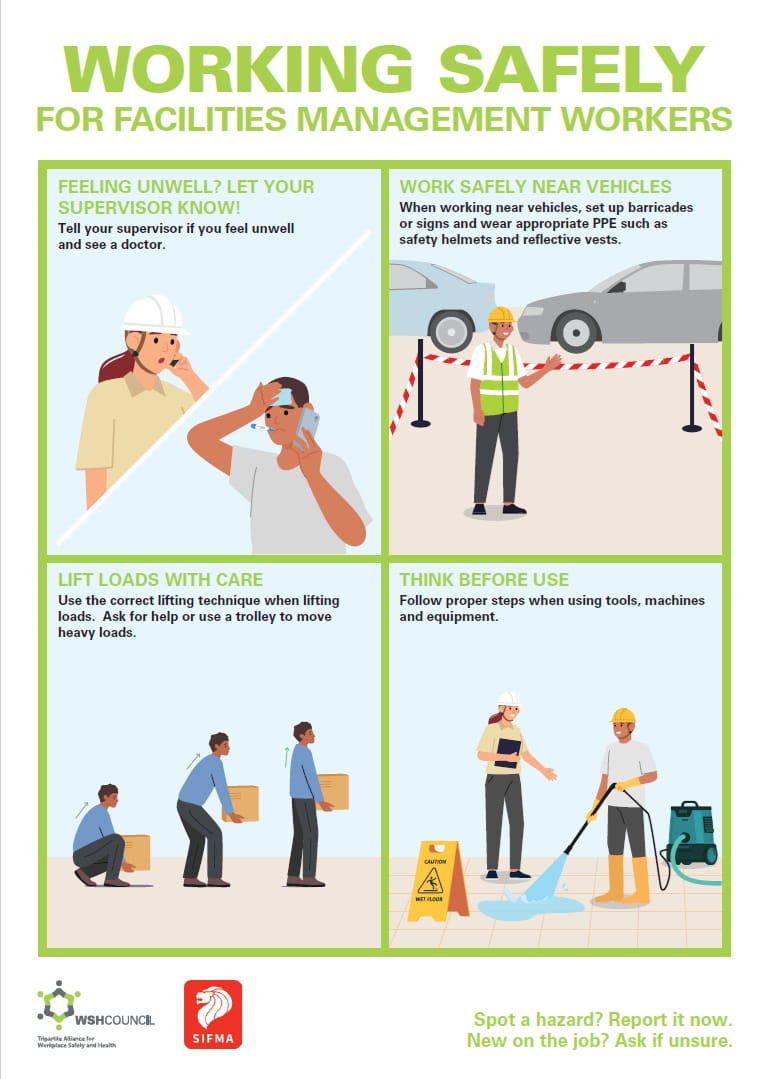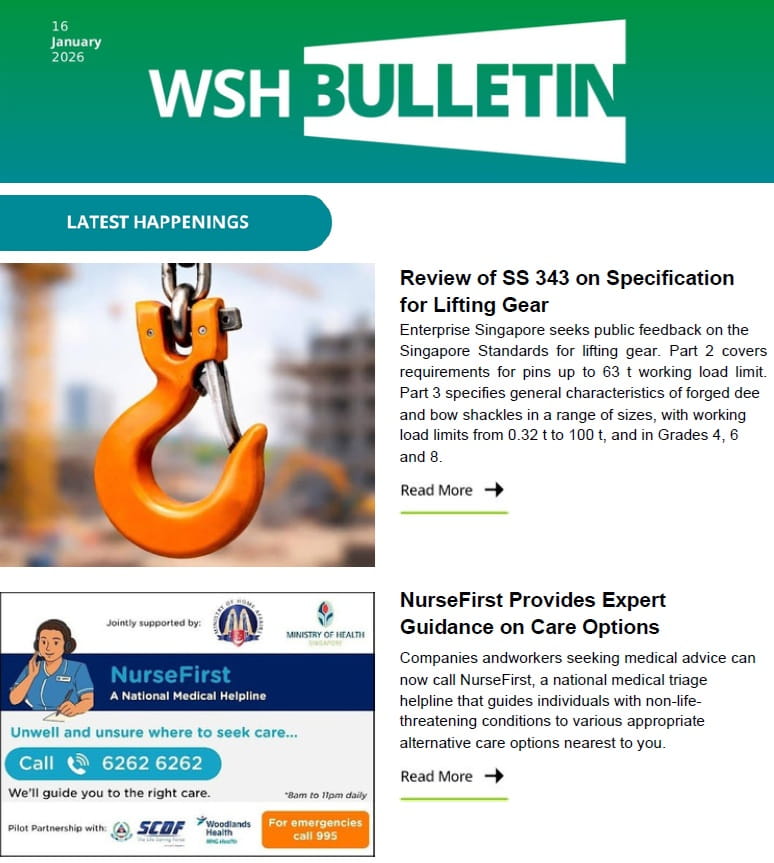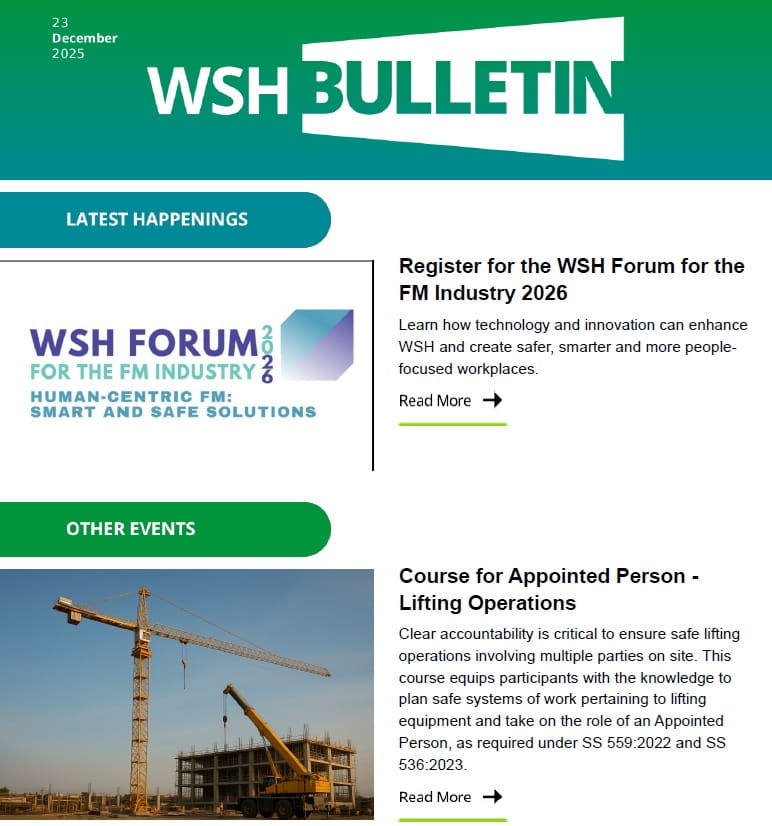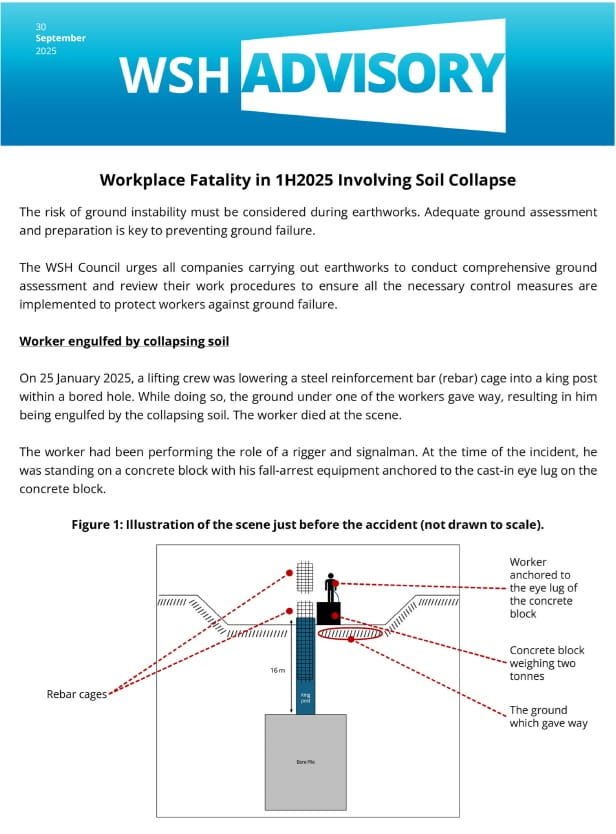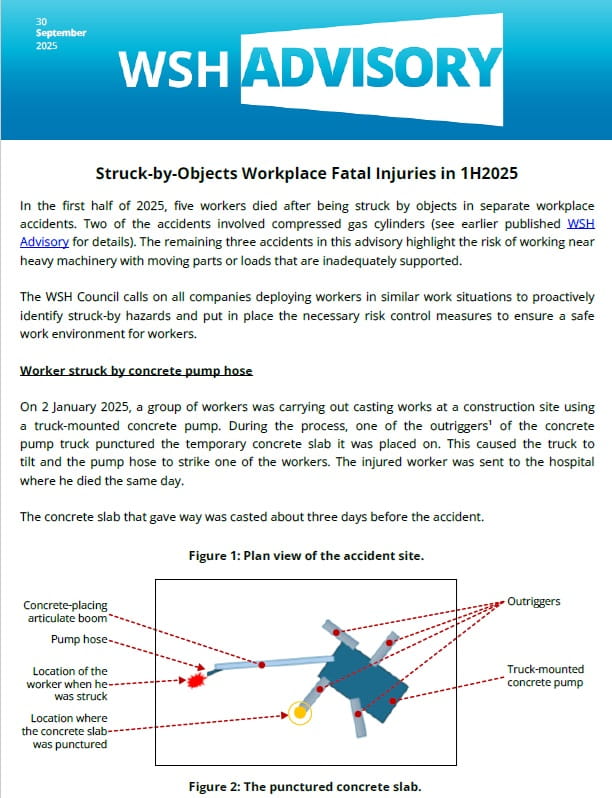Planning a Lift
Learn how to plan and execute a lifting operation safely.
Lifting Plan
A lifting plan provides a systematic approach towards planning a lift and ensures that the lifting operation is properly managed. For example, a lifting plan would ensure that the crane is safely deployed and operated, and the lifting crew are clear about their roles and responsibilities.
Before you start any lifting operation, you must prepare the following:
- Lifting plan supported by a risk assessment (RA);
- Safe work procedure or method statement;
- Permit-to-work (PTW); and
- Other relevant documents (e.g. load capacity chart, range diagram, rigging method)
For complex lifts, additional engineering design efforts are necessary to ensure that the lifting operation is conducted safely.
Components of a Lifting Plan
Your lifting plan should include, but not limited to, the following elements:
- Details of the load;
- Lifting equipment and gears;
- Lifting crew (including their roles and competencies);
- Lifting method;
- Requirements to erect or dismantle lifting equipment (if any);
- Means of communications;
- Physical and environmental conditions;
- Sketch of the lifting zone (showing position of lifting equipment, crew and load); and
- Any other important information (e.g. special precautions).
Note:
- You should never deviate or vary from the approved lifting plan.
- If the actual information at the lifting site does not tally with the lifting plan, you should stop the operation until the plan has been updated and re-approved.
For More Information
- Code of Practice on Safe Lifting Operations in the Workplaces (PDF)
- Guide to Safe Use of Overhead Travelling Cranes, Gantry Cranes, Jib Cranes and Hoists (PDF)
- WSH Guidelines on Safe Use of Lorry Cranes (PDF)
- Guidebook for Lifting Supervisors (PDF)
- Worker’s Safety Handbook for Rigger and Signalman (PDF)
- Worker’s Safety Handbook for Crane Operator (PDF)
- Worker’s Safety Handbook for Lorry Crane Operator (PDF)
- Checklist for Fixed Mount Tower Crane Users (PDF)


